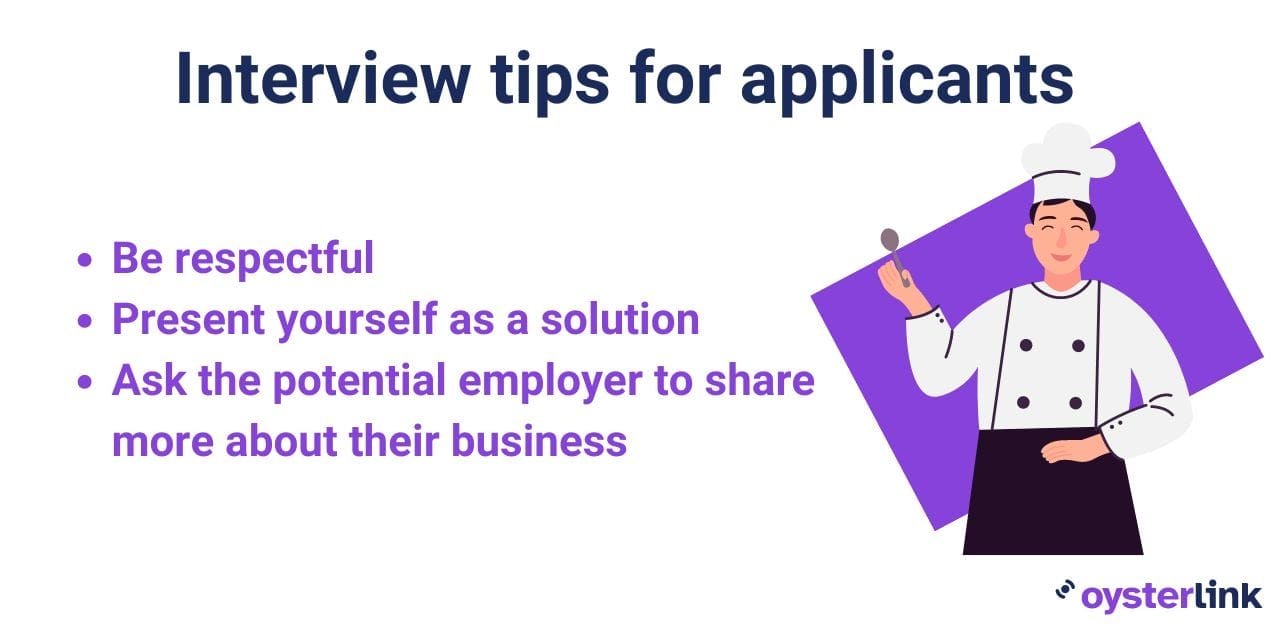Top 40 Private Chef Interview Questions & How To Answer Them
To help you start a career as a Private Chef, we'll guide you through some of the most commonly asked interview questions so you can secure a job in this role.
Please note that Private Chef and Personal Chef are often used interchangeably to describe the same position.
Popular Private Chef Interview Questions
If you're an interviewer, you'll find this guide helpful in understanding the duties and responsibilities of a Private Chef and the skills you need to look out for so you can hire the right person for your organization.
Types of Private Chef Interview Questions
- Private Chef Customer Service Questions: Unlike Chefs employed in food service establishments, Private Chefs interact more with customers. Therefore, they must have good listening skills and emotional intelligence to ensure their customers are satisfied with the service.
- Culinary Expertise Questions Asked in a Private Chef Interview: These questions aim to determine if you'll be able to handle different food requests from clients. To answer these questions, use specific examples to demonstrate to your potential employer that you're capable of doing the job.
- Organizational and Attention to Detail Interview Questions: To answer questions related to your ability to organize and pay attention to detail, provide a step-by-step process of your workflow.
What Are the Top Private Chef Interview Questions?
To dive deeper into this role, make sure to check out the 31 additional questions that can be useful for job seekers to practice or employers to truly understand the applicant's skill set and expertise.
Tips To Ace Your Private Chef Interview Questions
Here are some tips to help you stand out against other applicants.
- Be respectful: Being a Private Chef means you're in the business of being personable. If you're liked by the interviewer, they'll most likely feel confident that you'll also get along with their customers. The easiest way to be liked by people is to be respectful and kind.
Start with being on time for your interview, dressing appropriately by choosing clothes with an appropriate neckline and entering the room with a smile. A study shows that those who make an effort to be liked by the employer have better chances of getting hired. - Present yourself as a solution: The nature of being a Private Chef is to be a solution for those who don't have the time or capacity to cook. Present yourself as such by highlighting your commitment to helping customers achieve their health goals.
- Encourage potential employers to talk more about their business: Take this opportunity to determine if their goals are aligned with what you're aiming for in your career. Remember that interviews are a two-way process. As much as they're determining if you're the right fit for the role, you also need to know if you'd be happy working with them.
Before ending your interview, make sure you're clear about the next steps. Will they call you in a week to let you know if you got the job? Are you supposed to follow up? Asking about the next steps shows your enthusiasm for the role and your confidence in getting the job.

Tips for Employers Interviewing Private Chefs
Follow these tips to find a Private Chef who will help you grow your business.
- Look for those who can easily hold up a conversation: Look for applicants who are easy to communicate with so if there are any problems, you can tell them without stressing too much. It's also inevitable in this kind of job to have last-minute changes, so it'll benefit you to choose one who can manage unforeseen events with grace.
- Be clear about your needs and pay: Make sure the applicant understands what's needed from them. This includes the number of hours they need to work per week and if they're required to bring their own kitchen knives. Aside from your needs, be transparent with the pay as well. Let your applicants know how much Private Chefs in your company earn and how much they receive in tips.
- Do a background check: While this goes without saying, it's especially crucial for Private Chefs as they'll be going to clients' houses. Statistics show that 70 to 100 million Americans have criminal records. You have to make sure that your interviewee has a clean criminal background and that they're highly recommended by their previous employers and colleagues.



